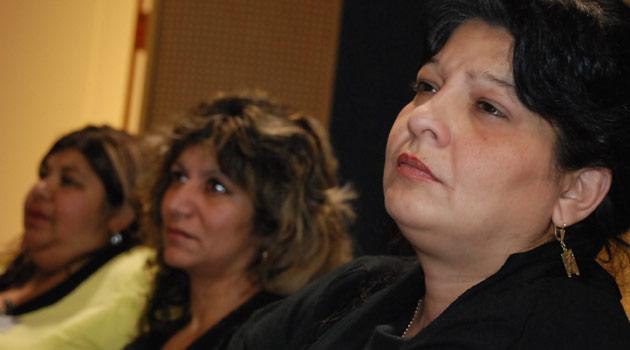Czech Government to answer questions about illegal sterilizations, mostly of Romani women, from UN Committee tomorrow

Tomorrow, 23 February, a delegation from the Czech Republic will answer questions before the UN Committee for the Elimination of All Forms of Discrimination against Women (CEDAW). The Czech Republic should inform the Committee of the steps it has taken for the purpose of fulfilling the UN Convention on the Elimination of All Forms of Discrimination against Women.
CEDAW is an independent monitoring body of the United Nations tasked with overseeing the fulfillment of the Convention and formulating any eventual recommendations about its fulfillment to the individual member states of the UN. The session begins at 10 AM Geneva time and will be possible to follow live online.
One point on the agenda will be the still-unresolved issue of compensation for the victims of illegal sterilizations. In October 2015 the Czech Government rejected a proposal by the team of Czech Human Rights Minister Jiří Dienstbier (Czech Social Democratic Party – ČSSD) to compensate the victims of illegal sterilizations from decades past.
According to that proposal, eligible women would have been awarded compensation of up to CZK 300 000. According to some comments made by those who reviewed the proposal, these victims are able to sue in court for compensation, and it should be enough for them that the state expressed regret for the incidents in 2009 and has changed the rules under which such interventions are now performed.
According to Deputy Human Rights Minister Martina Štěpánková, however, the statute of limitations for financial compensation has expired for the vast majority of these cases. She also expressed doubt that it would ever have been possible for those who were either coercively or forcibly sterilized during the communist regime to have sued.
The European Roma Rights Centre (ERRC) came forward in 2004 with the suspicion that the forced illegal sterilization of primarily Romani women in the Czech Republic was an ongoing phenomenon. Dozens of women then applied to the Czech Public Defender of Rights for assistance and some also sued in court.
In 2005, Public Defender of Rights Otakar Motejl first produced a systematic report on the issue. The Czech Government Committee against Torture proposed introducing a compensation scheme for the victims in 2006.
In 2009 the cabinet expressed regret for the illegal interventions; the Czech Republic has earned criticism from international organizations for having violated the victims’ human rights and having not yet compensated them. The circle of subjects that will be the topic of tomorrow’s session were also discussed by the Government in its answers to preliminary questions submitted to the Government by the Committee last autumn.
"In its answers to the preliminary questions, the Government argues against establishing a special compensation mechanism by citing potential complications with evidence, especially evidence for older cases, but such complications with evidence are precisely why the Government should proactively compensate these persons through a separate procedure," Gwendolyn Albert, who has long been aiding the victims of illegal sterilizations, told news server Romea.cz. Albert says such issues were one reason the Public Defender of Rights, in 2005, recommended establishing such a special compensation mechanism.
"The Government also argues that the Czech Supreme Court has been able to suspend the statute of limitations in two cases and awarded compensation to unlawfully sterilized persons, but it does not explain that those were more recent, post-1990 cases where the evidentiary situation was comparatively strong. If anyone who was forcibly and unlawfully sterilized before 1990 has ever successfully sued, then that fact is not generally known. There is no guarantee that the courts will deliver justice in other cases of this kind, and the Government should take particular responsibility to compensate these persons, as their unlawful sterilizations are a result of Government policy before 1990 and a result of Government failure to explain its policy changes after 1990," Albert said.
In addition to illegal sterilizations, the Committee will also review measures adopted for the purpose of supporting the equality of women and men on the labor market; the prevention of domestic violence; reductions in the length of discrimination disputes addressed by the courts; and the issue of whether women are free to choose the circumstances of, method of, and place where they give birth. The Committee is also focusing, for example, on the accessibility of childcare services, on the rights of women living with disabilities to marry and become parents, and on the increasing risk of single mothers in particular being endangered by poverty.
The session follows the Sixth Periodic Report on the fulfillment of the Convention which the Czech Government submitted to the Committee in the fall of 2014. These sessions regularly occur at six-year intervals and are participated in by all contracting parties to the Convention.
The outcome of the session will be so-called "Concluding Recommendations". In those recommendations the Committee usually calls on the member states to take other specific steps in problematic areas related to discrimination against women and gender inequality.